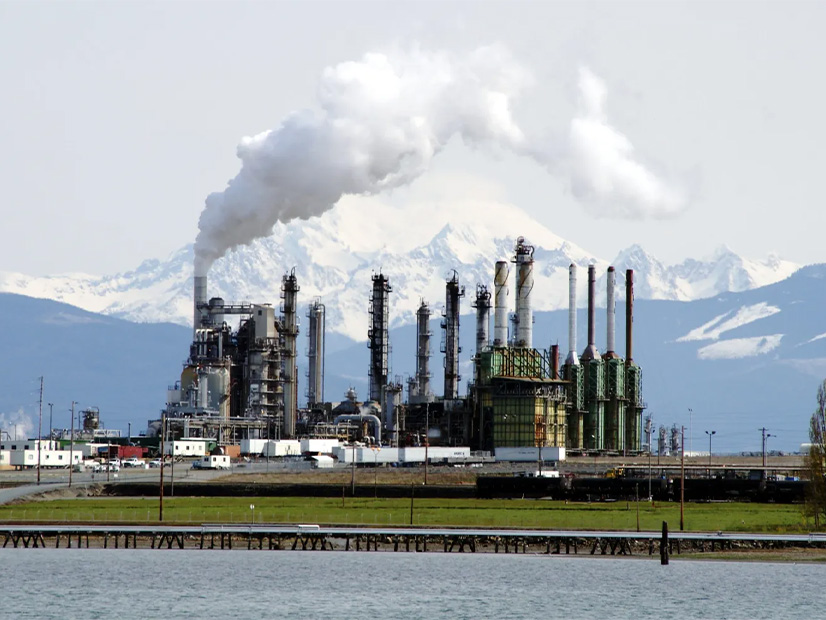The state will tentatively seek to link its cap-and-trade program with the California-Quebec carbon market in an effort to reduce the financial impact of pricing carbon in its economy.
Washington state will tentatively seek to link its cap-and-trade program with the California-Quebec carbon market in an effort to reduce the financial impact of pricing carbon across its economy.
Laura Watson, director of Washington’s Department of Ecology, announced the decision Nov. 2, two weeks after the agency released a preliminary study showing the state would benefit from linking with the older and larger carbon allowance market. (See Analysis Favors Wash. Linkage with Calif. Cap-and-trade Program.)
Watson said the state’s final decision will depend on the outcome of talks with the California-Quebec coalition. The earliest the two markets could be linked is 2025.
When Washington’s legislature passed the state’s cap-and-invest law in 2021, it directed the state government to investigate linking with other cap-and-trade markets in an effort to reduce costs for buying allowances. Clearing prices for Washington’s allowances have been linked to increased gasoline prices in the state this year, the first for the cap-and-trade system.
While Washington and the California-Quebec coalition have informally discussed how to align their respective cap-and-trade programs, no formal talks have begun, Watson said.
The nuts and bolts of meshing the two systems will have to be addressed before linkage. For example, Washington limits a bidder to buying 10% of the available allowances per quarter, while the California-Quebec market allows for 25%. Washington would likely have to agree to the 25% limit, Watson said. Luke Martland, implementation manager for Washington’s cap-and-invest program, said adopting the higher limit is unlikely to lead to any entities cornering the allowance market.
The public will have input on a draft agreement, if one is reached.
“California is also required to undergo its own evaluation and public process for any changes that would be required to pursue linkage. We believe subnational collaboration such as program linkages is an important tool to address a global issue such as climate change,” Lys Mendez, spokesperson for the California Air Resources Board, told NetZero Insider.
The Ecology Department’s preliminary analysis concluded the proposed linkage likely would improve the Washington cap-and-invest program’s economic durability, longevity and efficacy.
“In a larger, more liquid market with a greater number of participants, allowance prices would likely be lower and change more predictably. Predictable prices can foster greater investments in decarbonization,” the report said.
Participants in Washington’s cap-and-invest program would be able to more effectively perform long-range planning and pursue expensive investments in anti-carbon measures more readily, the report said.
Washington’s carbon allowance market now is slightly bigger than Quebec’s alone, but only 18% the size of the combined California-Quebec program.
The preliminary analysis estimated Washington’s market by 2025 would be just 16% the size of the California-Quebec system.
Joel Creswell, Ecology’s climate policy section manager, recently briefed the state House Environment and Energy Committee about the proposed move. He said a three-government cap-and-trade coalition likely would shrink Washington’s final bid prices in its quarterly cap-and-invest auctions.
But a state Republican leader was critical of Ecology’s decision to move closer to linkage.
“California has the highest gas prices in the country and the third highest retail electricity rates in the country. … Everything California policymakers touch related to energy markets ends in disaster for consumers,” state Rep. Mary Dye, ranking Republican on the House Environment and Energy Committee, said in a press release.
Critics of Washington’s cap-and-invest system have blamed the program for the state’s high gasoline prices. However, program supporters put the cause on oil companies’ exploiting the program to charge more at the pump. Washington’s Democratic legislators plan to introduce an oil industry financial transparency bill in the 2024 session.



